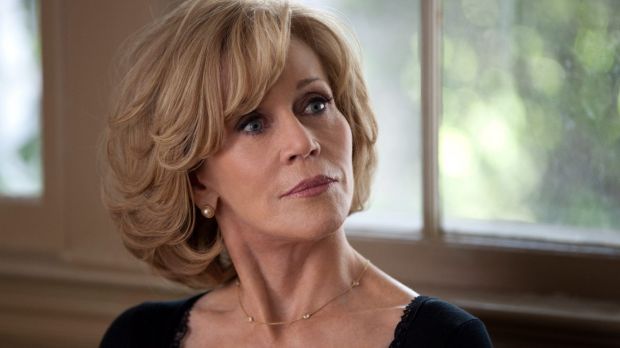
Balance restored: Jane Fonda has touted the benefits of taking testosterone later in life.
Jane Fonda gave a candid interview three years ago in which she admitted that her sex life needed some artificial help and she had been taking testosterone to boost it, from the age of 70. She attributed her youthful looks and happy demeanour to a healthy love life. “If you want to remain sexual and your libido has dropped, taking a small dose of the libido-boosting hormone testosterone makes a huge difference,” she said.
Several studies have shown the importance of maintaining healthy testosterone levels in males and doctors have started to recognise the benefits of testosterone therapy for aging men and also for younger men who have testosterone-deficiency.
But evidence that women can also become testosterone-deficient is largely ignored. Only levels of the “female” hormones progesterone and oestrogen were thought to be important for a woman’s health and wellbeing. But many experts now believe that it’s the loss of testosterone, not oestrogen, that causes women in midlife to gain weight, feel fatigue and lose mental focus, bone density and muscle tone.
Many women reaching menopause are scared off by the belief that hormone replacement therapy (HRT) can cause breast cancer. In 2002 a Women’s Health Initiative study in the United States was halted when researchers noticed an unexpectedly high rate of breast cancer among older women taking HRT. This alarming finding frightened millions of women, and their doctors, away from hormone therapy at menopause.
A decade later, medical professionals agreed that the 2002 findings were flawed and hormone replacement therapy might not be as risky as once believed. Unfortunately, many women still believe hormone replacement is not safe and, too often, uninformed GPs advise women against taking HRT instead of explaining the benefits and risks to allow them to make an informed choice. Why should so many women feel miserable during menopause when they don’t need to?
The medical profession traditionally responds to menopausal complaints by prescribing oestrogen and progesterone, which address some of the usual menopause discomforts but do very little to enhance libido or energy. However, there is a popular synthetic hormone called Tibolone (Livial) on the market that converts in the body to substances that act like oestrogen, progesterone and testosterone. It is said to enhance women’s mood and libido, reduce hot flushes and sweats, improve vaginal dryness and protect against osteoporosis.
A 2010 medical review showed that testosterone does not increase a woman’s risk of breast cancer, but may actually play a key role in preventing the disease.
Controlled studies show that slightly increasing testosterone levels in aging women can restore libido, increase arousal and the frequency of sexual fantasies. Low testosterone levels in women of all ages is a key factor in female sexual dysfunction, especially diminished desire and libido. Administering a low dose of testosterone has also been shown to improve mood and overall wellbeing.
Professor Susan Davis from Monash University and her colleagues from the not-for-profit Jean Hailes Foundation in Melbourne, have been studying testosterone for the past two decades and have conducted several intensive trials.
This is a podcast of Davis being interviewed by Richard Aedy of ABC Radio National in 2011, discussing a medical trial in which testosterone was administered to women aged between 35 and 55 who were taking anti-depressants.
A 2013 research studyled by Davis concluded that post-menopausal women on testosterone showed a significant improvement in cognitive function, verbal learning and memory. In another study tests were done on two different doses (5mg and 10mg) of the testosterone cream known as AndroFeme, which was developed in Australia. The 5mg dose brought postmenopausal women’s testosterone back into the normal premenopausal range.
In my practice, I see many women aged 30 and over who complain that they have no libido left, and don’t feel like sex anymore. When I refer them to their GPs to have their hormone levels tested they are often low in testosterone. The problem is that in Australia there is no Therapeutic Goods Administration approved testosterone therapy for women. AndroFeme1 is only available in pharmacies in Western Australia on prescription. Outside WA patients must mail their prescriptions to Western Australia to be dispensed. It is important to make sure treatment is always supervised by a physician.
Men have easy access to testosterone; they have the choice of testosterone gels, solutions, patches, capsules, injections and topical creams. Most physicians have no problems prescribing it. About $16.5 million is spent annually, which doesn’t include sales by compounding pharmacies of costly testosterone products, which are mainly untested, or steroids bought at gyms or illegally over the internet.
This situation in Australia is mirrored worldwide. The International Society for the study of Women’s Sexual Health has initiated a global petition highlighting this disparity. Check out their Facebook page.
Why is testosterone therapy easily available for men and not for women?
It’s time for Australian women to complain!
